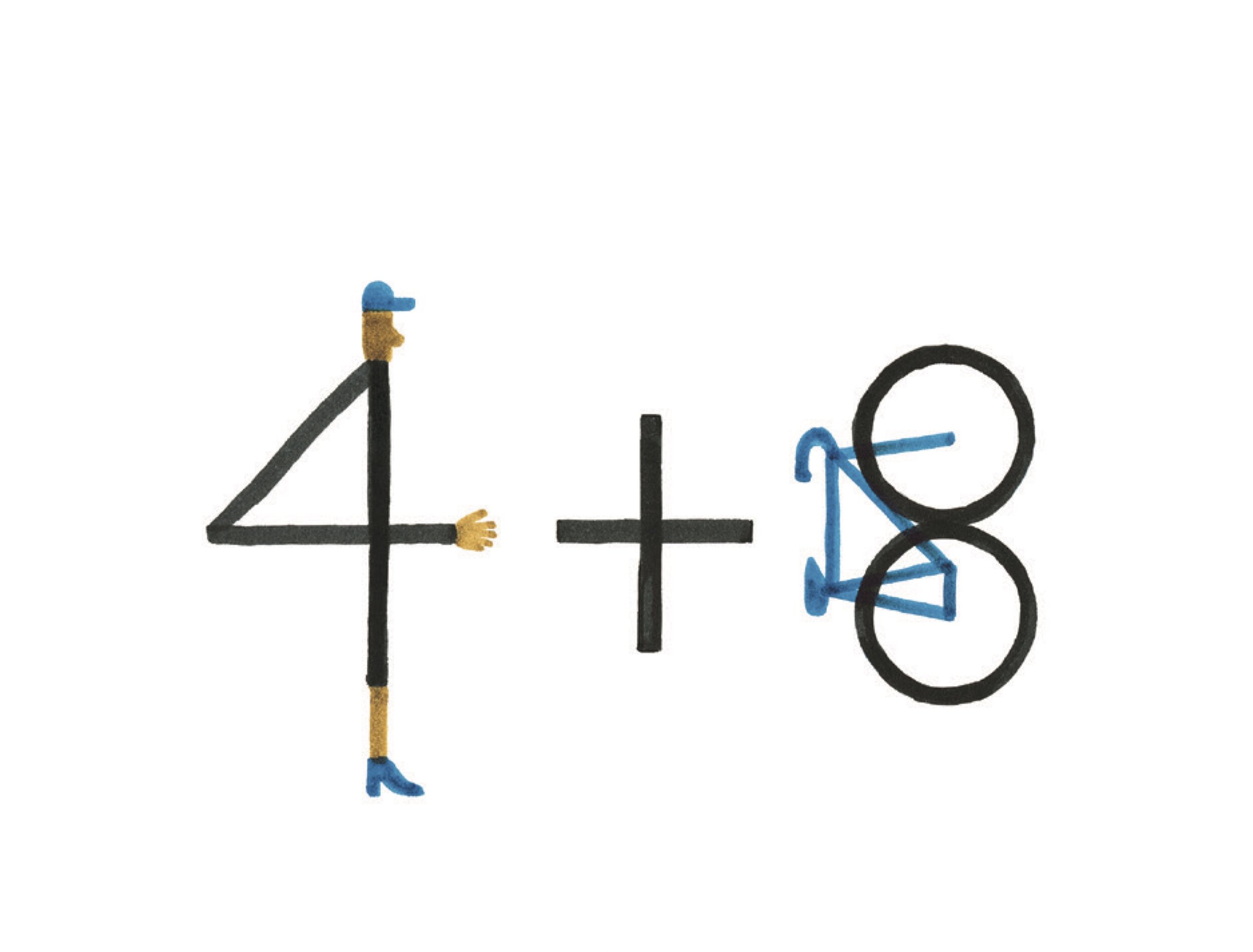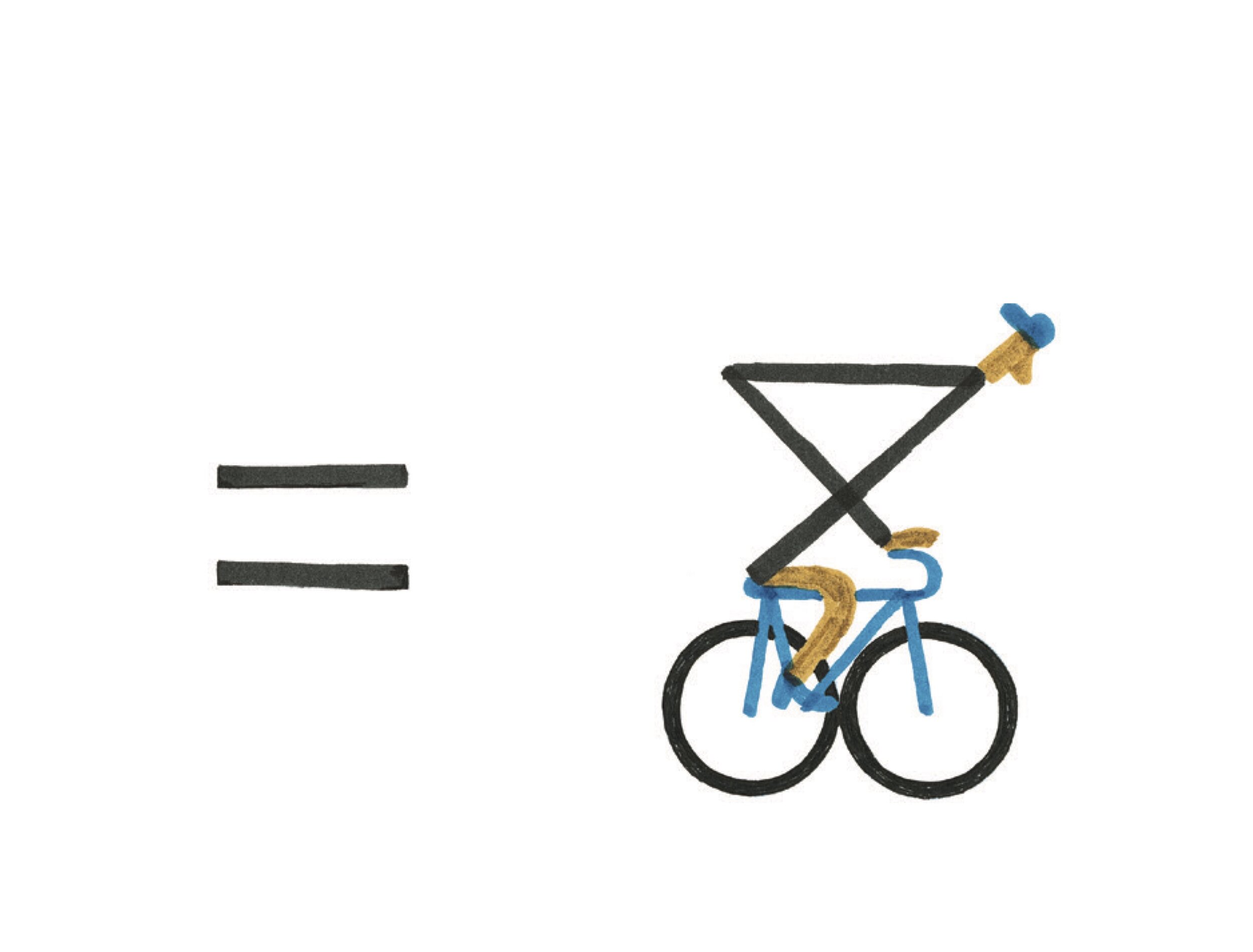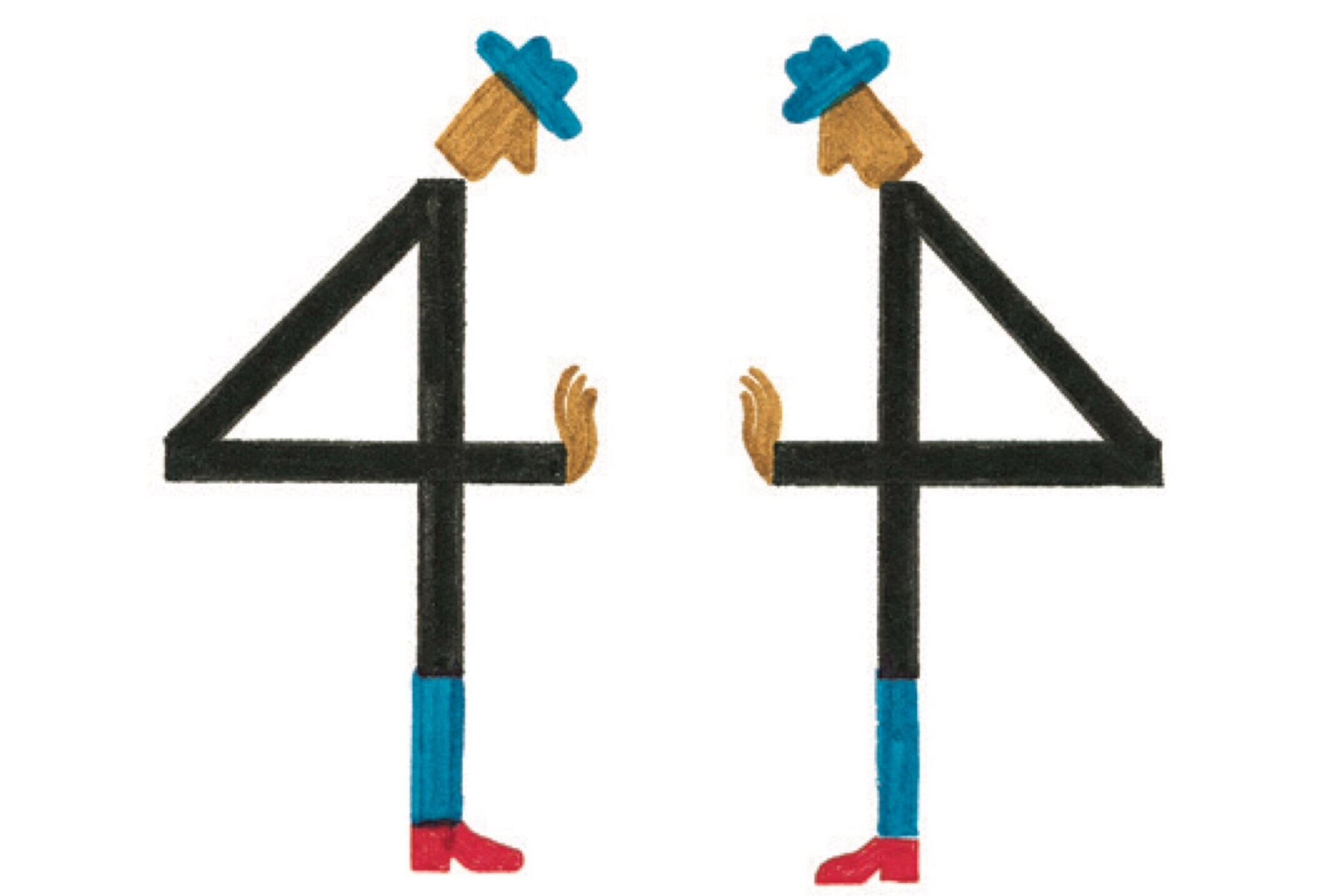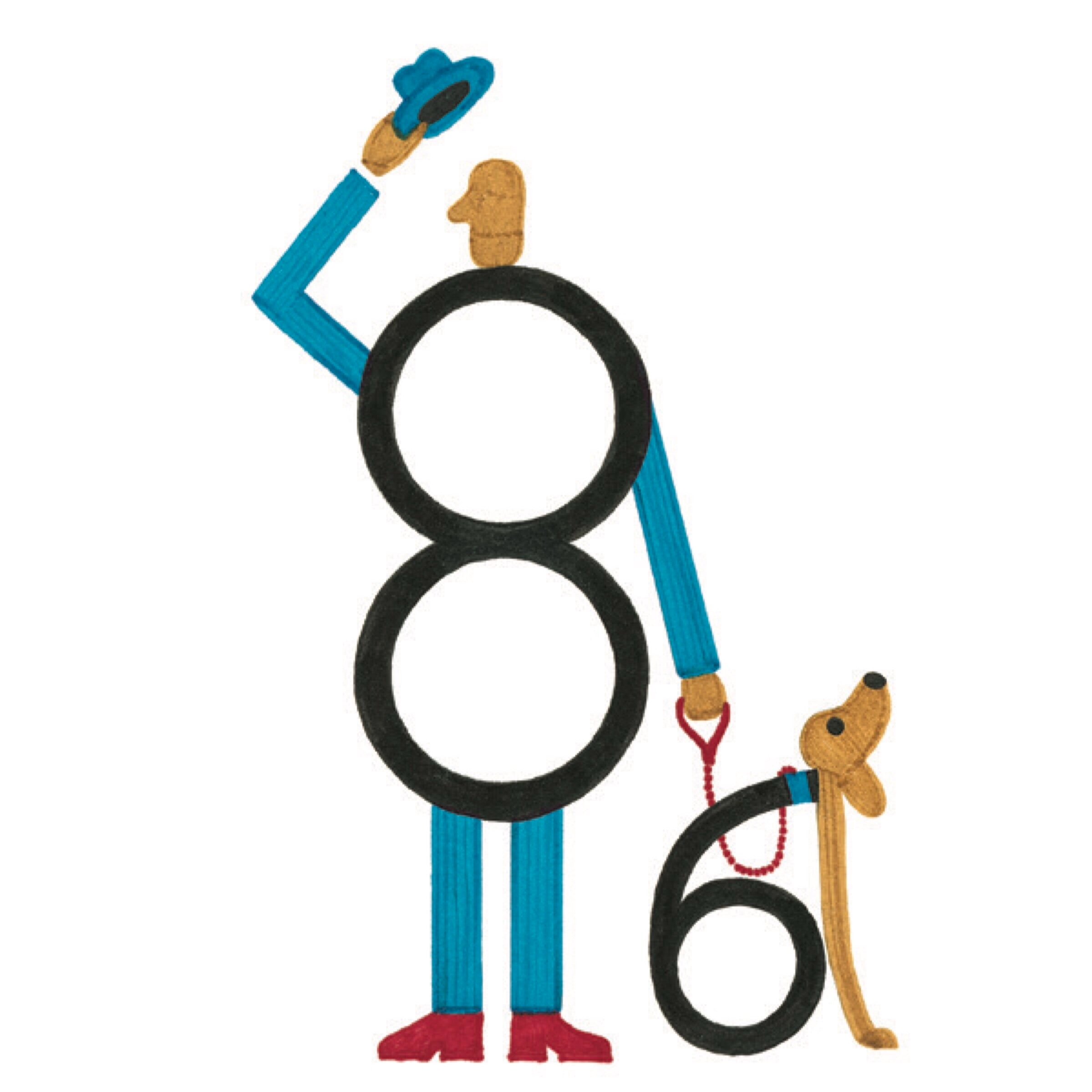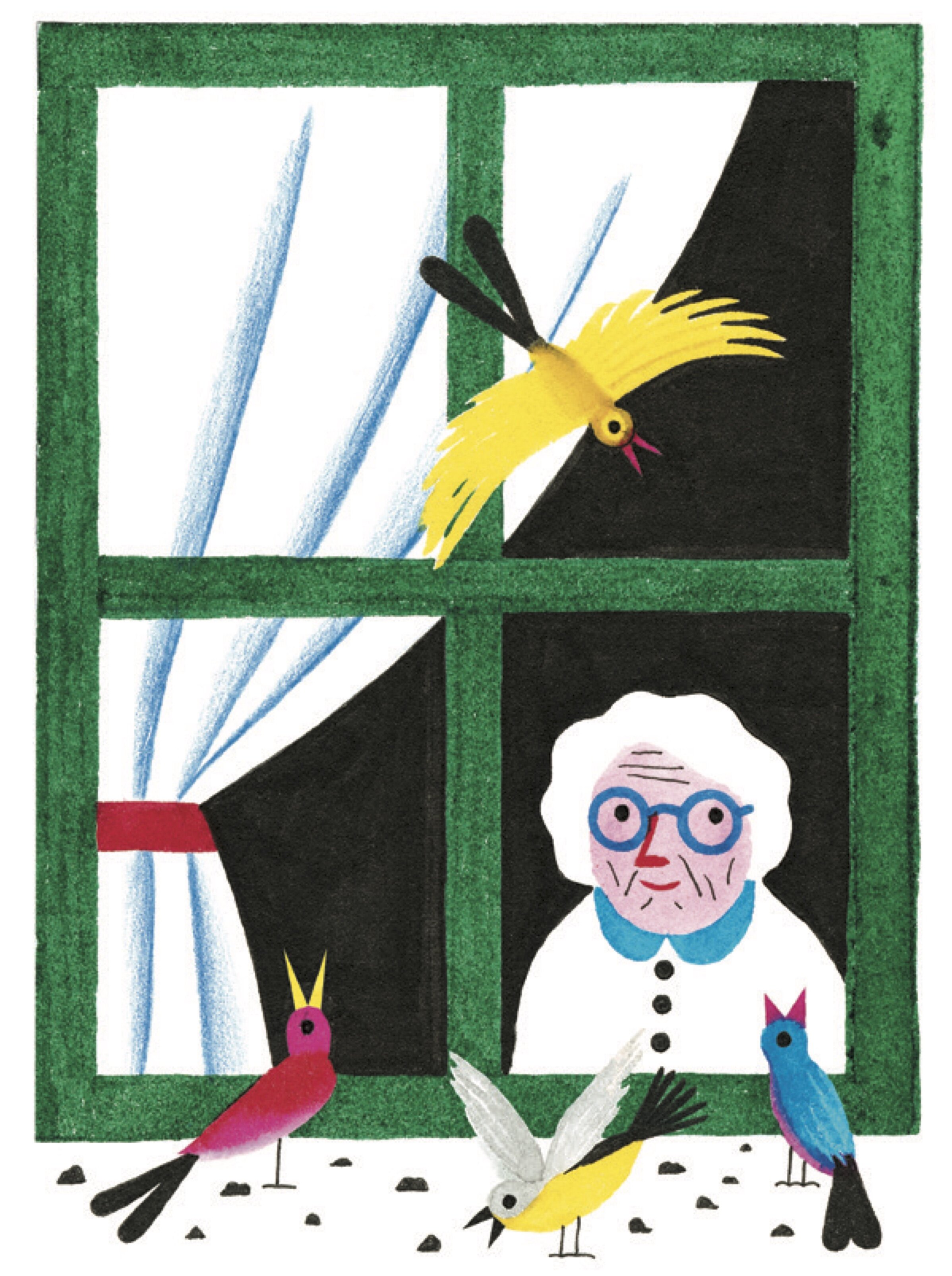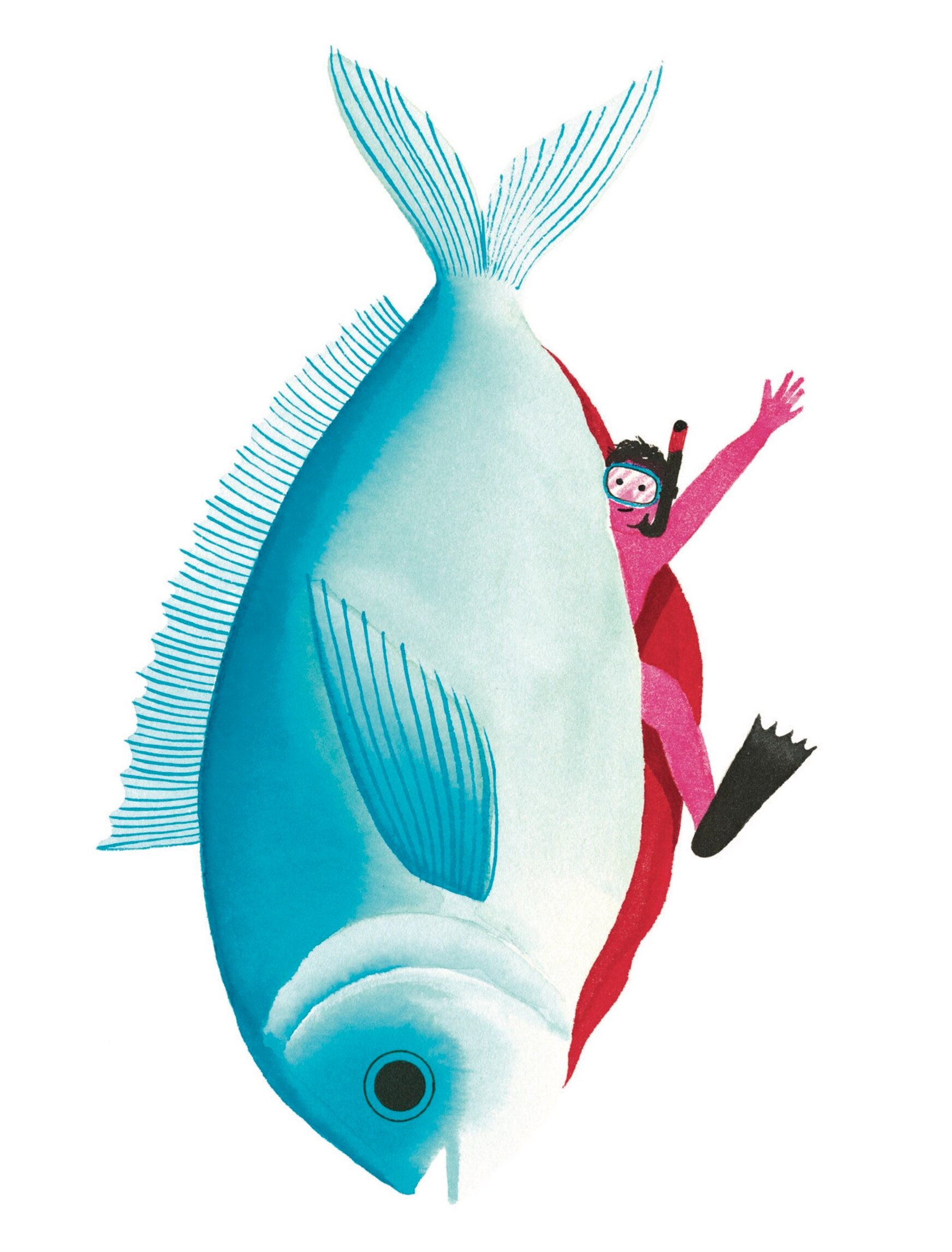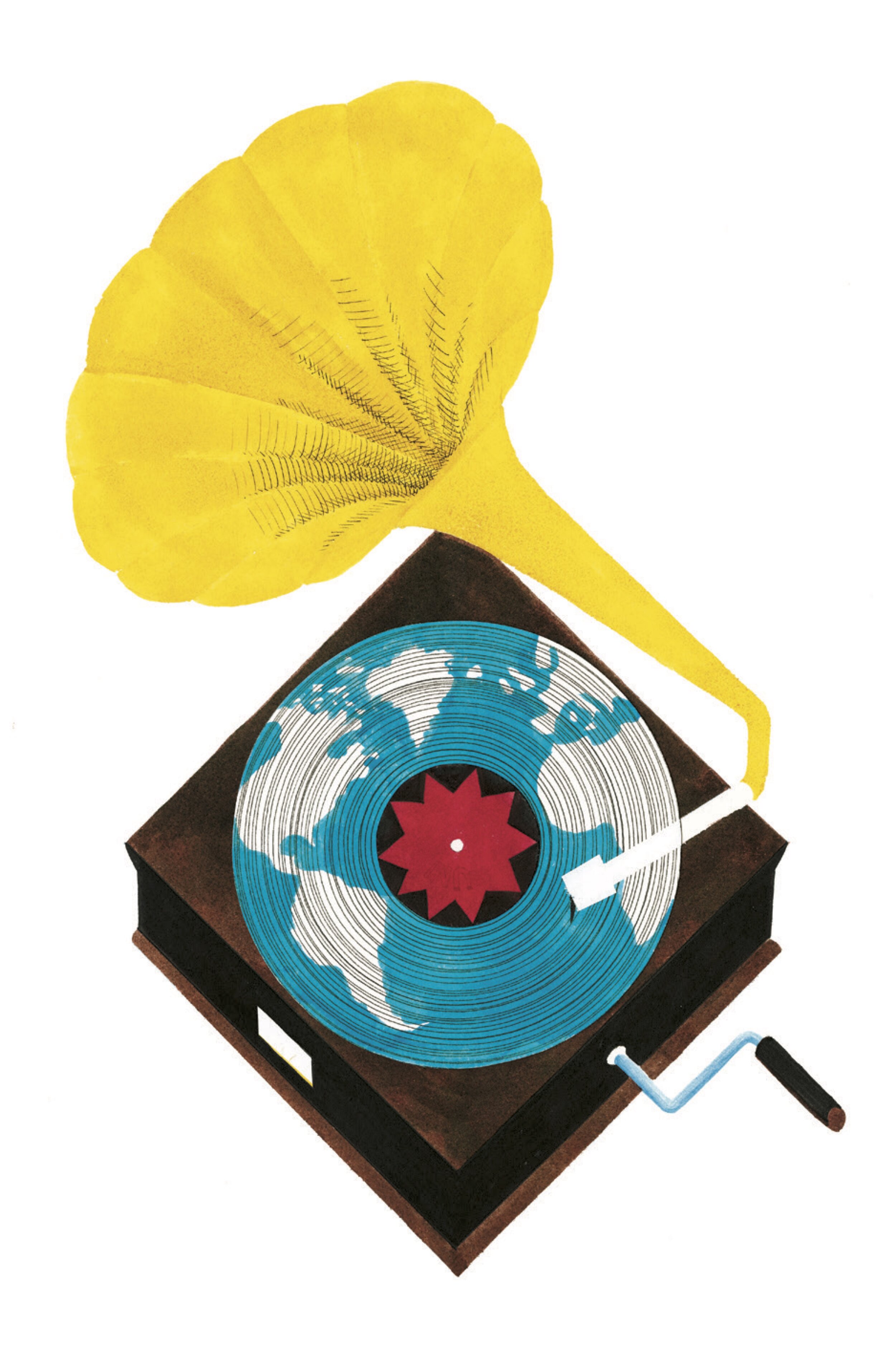Part 3: A Conversation around Language, Hijacking Reality, and Italy with Translator Antony Shugaar
In an interview touching on translation, Rodari, and children’s literature, Enchanted Lion’s Emilie Robert Wong and translator Antony Shugaar discuss his work on Gianni Rodari’s Telephone Tales. In this third and final installment, he dissects a story, muses on what can be lost—and found—in translation, and answers our Ten Basic Questions.
October 23, 2020 marks Gianni Rodari’s 100th birthday. To celebrate this occasion, we’ve been releasing the interview with Antony Shugaar in three installments throughout the week. This is the last installment. Read the first part here, and part two here.
ERW: I think it would be great to dive into more specifics of your translation process. Did you say that you had a particular story that you wanted to talk about?
AS: There is one that I like very much called “Inventing Numbers” (“A inventare I numeri”). It’s a great story to look at because it presents some real challenges.
All right, so in Italian, it’s:
Inventiamoli, comincio io. Quasi uno, quasi due, quasi tre, quasi quattro, quasi cinque, quasi sei.
That’s easy:
Almost one, almost two, almost three, almost four, almost five, and almost six.
And in the Italian, it was “Inventiamoli.” “Inventiamoli” is a beautiful construction. It’s: “Let's invent them.” And I just thought, “Yes, let’s invent them.” I put, “Yes, let’s” because it was about the right quantity for the Italian. “Inventiamoli !” “Yes, let’s!”
So then:
È troppo poco.
It’s not enough.
“Troppo poco,” that’s ”not enough.” And that’s a hilarious thing to say about almost one, almost two, almost three—not enough!
Now listen to this one:
A mega million times a billion, a tricyclon of squintillians, a googleplexity of cintillions, and an octillion.
That represents in Italian:
Senti questi: uno stramilione di biliardoni, un ottone di millantoni, un meravigliardo e un meraviglione.
I will confess that Gianni Rodari goes a little further than I did there, and you can’t necessarily match everything. “A tricyclon of squintillians,” I like, because the “tricycle” is in there, but in Gianni Rodari, it’s “un ottone di millantoni.” “Ottone” is a brass, and “millantoni” is someone who is basically a fraud artist, but you can’t match exactly the puns—I mean, you can! You could translate anything exactly as it was; it’s just that instead of a sentence, you might need a chapter.
ERW: Right, with all the different little footnotes and cross references.
AS: Exactly, exactly. And then there is the multiplication table that in Italian is just so rich and so unreproducible:
Tre per uno Trento e Belluno
That means, “Three by one is Trento and Belluno,” which are two towns in northern Italy. And so I said to myself, “All right, then I’ll invent a multiplication table.”
Three times one, a barrel of fun.
The point is just to be convinced.
And then, look at that:
Tre per due bistecca di bue
That means, “Three by two is a beef steak,” and instead, I did exactly this:
Three times two, Kalamazoo.
In “three times one,” there were two town names, so I just figured in “three times two,” I could fit in Kalamazoo, so I moved that one over. You still get a town!
ERW: And I think the impression and the sentiment and the reaction, which are the things you’re trying to reproduce in the reader, will still be there. It doesn’t really matter what order it’s in.
AS: It really doesn’t. And readers won’t know if something was left out, as long as you’re convinced, as long as you go for it with the conviction, and you sort of feel like Gianni Rodari would have approved.
There was a funny thing that happened with this one. An Italian journalist wrote an article about this one and pointed out that all of them rhyme in English, which they do:
Three times six, stack of bricks; three times seven, manna from heaven; three times eight, Alexander the Great; three times nine, Frankenstein; three times ten, and back again.
And he pointed out that the fourth one, “tre per quattro cioccolato” (“three by four, chocolate”), doesn’t rhyme in Italian. I wrote to him, and I haven’t heard back from him yet, because maybe only a translator would even think of arguing this point about “tre per quattro cioccolato,” explaining, “Yeah, it doesn’t rhyme if an adult says it. But if a little kid says it, ‘te per quatto cioccolato,’ it does rhyme because in that particular position, an Italian kid wouldn’t be able to pronounce the ‘r.’” So that’s the kind of ridiculous, dungeons-and-dragon type of thing you can get into.
Let’s see if there was anything else. [After the multiplication table, comes:]
Quanto costa questa pasta?
which is a hilarious sentence alone. “Quanto costa questa pasta?” means, “How much does this pasta cost?” And the answer is:
Due tirate d’orecchi
which is “two tugs on your ear.” You do that to little kids when you’re playing; you yank on the lobes of their ear.
I translated this as:
How much does this pasta cost?
which doesn't sound as good as the Italian. “Quanto costa questa pasta?” is miles ahead of that, and then the answer is:
Two slaps on the wrist.
Then,
How far is it from here to Milan? A thousand new miles, one used mile, and seven lemon gumdrops.
That was pretty close to the Italian, except for “cioccolatini.” It was “chocolate,” not “gumdrops.”
So, that’s kind of the process. I look back on it, and I say, “That is a very imperfect rendering of the Italian,” and that is what translation is about. Because I will tell you that there’s a translator and author from Colombia, Juan Gabriel Vásquez, who said that one of the first things that he learned about translating is how important it is to betray the original. It’s important to betray the original because if you become a slave to the original, you’re never going to have a good outcome. There’s always going to be loss. There’s no way to keep a poem with the meter and the rhymes. Maybe in an invented world, but that’s the other thing about translating: you don’t actually have years in real time; you have to meet deadlines. And so, it’s imperfect, but if it’s good enough, then it’s good enough.
ERW: That idea of betraying the original is reminding me of that phrase “traduttore, traditore.” That’s something that people toss around all the time in talks about translation, and it’s just perfect that it’s in Italian, but it’s become something that people say in discussions in English about translation, too.
AS: Yes, it is. It is common in English, and the question is, and the beauty of it is, that it’s completely ambiguous what we’re saying. Are we saying, “traduttore, traditore,” that a translator is a scoundrel? Is a translator a bad person? Is a translator someone who is a traitor to the original? I mean, as a translator, I’ll say, “Yeah, translation is about loss.” Translation is—what is that old joke about doctors, that they bury their mistakes? Well, translators cannot; there is not a way to translate exactly what it is.
Let's take “portone.” It’s one of my favorite words in Italian. It’s in a palazzo, which is an apartment building on a city block: you have an entrance, the sidewalk goes in front of it, and there’s a big door, usually arched, with a little door in it. And if you ring somebody’s doorbell, then they will buzz down, and the little door will open. Opening the big door requires taking the very large braces off, and it’s there so that cars can drive through. So, that’s a portone, which has: big doors that can open, one of them can open, the little door can open, they can be left open during the day and closed at night… There’s a whole sociology to the portone. When you walk through a portone, on your left or on your right, there’s going to be a little booth where the doorman or the concierge lives. And then through there, you go into the courtyard, and that’s where you’re surrounded on all sides by balconies and laundry and children playing, so then maybe there’s trees.
So, when I use the word “portone,” that’s one of the many things I mean by “portone.” I usually call it a street entrance because it’s something more ceremonious than a door, something bigger. It’s what everybody comes through to the apartment, and then they go up to the various landings where their apartments are. It’s easier for New Yorkers to understand than if you’re from Los Angeles where there are very few apartments. So if the word makes you talk for five minutes just to explain what the word is, how do you translate that word?
Now, take an Italian restaurant. Well, the door opens inward. In America, the doors in a restaurant always open out. That’s by law: the reason that the doors always open out is that if there’s a fire and everybody’s running for the door, you don't want a door that opens in; they’d all get pressed against the door, and then they die. In Italy, cars park on the sidewalks, so if a car parks too close to the front door, it’s probably good that it opens in, not out. I don’t even know if that’s true, if that’s why they have that law, but I will tell you that doors open inward in Italian restaurants. That’s the kind of anthropological observation that you have to [do as a translator].
There was a wonderful translation I did about somebody who works in a car dealership. He lives in Rome, and of course, in August, everybody goes away for a month. Everybody plans it out. This person’s going to Sri Lanka, that person is going to Saint-Maurice, this person’s going to be spending half the time at the beach and the other half in Provence. Everybody’s got a plan. Everybody’s got a whole adventure they’re going to do. But this guy hadn’t planned anything for August, and his life was at a pretty bad point. He looks out the window and sees the traffic going by, and he suddenly gets a surge of depression. He understands why he can see the traffic going by: there are no cars parked on the sidewalk. Everyone has left for their vacation, and he’s sitting there, thinking, “I didn’t even see this coming.” So, to be able to map the place that you’re talking about and to provide that map to your reader in a persuasive way, I think I might have added a little bit there about August. To an Italian, you can just say, “It was August;” to an American, you would say something like, “It was August, and the city was emptying out because everyone was going on vacation.”
ERW: Do you find that there were any moments in Telephone Tales, or in any of your other works, where it’s this coincidence where sometimes English seems better suited than Italian? I’m thinking of the Harry Potter series when it was translated into French: they changed the Sorting Hat, which is this magical hat that chooses which house the students go into, into the “choixpeau magique,” which comes from “chapeau” which means “hat,” but also from “choix,” “a choice.” And also, “chapeau magique,” specifically, is like “magic hat” or “wishing cap.” Were there any moments like that, where you realized you could amplify what’s being said in Italian through the English?
AS: Nothing occurs to me like that. But I think that there were moments like that, and that’s just such serendipity. And when that serendipity happens, you get a real chill down your back. It’s a real piece of fun. Then, you say to yourself, “What a magical thing language is!” Oh, “choixpeau” is wonderful! And you also think to yourself, “Boy, Gianni Rodari would have liked that.”
I can’t think of any particular instances, but that certainly does happen. You know, I even got a little charge out of seeing Kalamazoo moved over in “Numbers.” I thought that that was fine. I could see that those two cities, Trento and Belluno, are kind of middle-sized, provincial cities, so Kalamazoo was perfect. Kalamazoo is in Michigan, and it’s a cold place, and Trento and Belluno are up in the Alps, so there’s snow. I was happy with the translation.
ERW: Sometimes we think of translation as losing things, but I think it also is enriching in some ways to find little moments where language does somehow align.
AS: Yes. And that’s the whole process of translating. I’m sure one of the great translation terms is “false friend.” In Italian, “rancho” is the absolutely horrible swill that they serve you in the military cafeteria. In Spanish, “rancho” is a nice working farm in the southwest. And then there are words like “voluble,” which means, “somebody who talks a lot.” That’s a word I’ve had to learn because people say that I’m voluble, but what they really mean is, “You just don’t stop talking.” In Italian, “volubile” means “fickle.” And if you look at really old dictionaries, to talk about the historical evolution of the word, in the 1500s, apparently the English “voluble” meant “fickle,” too.
These words wander around; they change. I had a friend who was a classicist who did a five-thousand-year history of the word in Greek for “service,” which meant originally “service” as we think of it (as in “serving somebody”). And nowadays, you can certainly say, “I’m going to a church service.” Why is that a “service?” Words drift all over the place. Again, Lewis Carroll. What is it that Humpty Dumpty said? He said, “I decide what a word means. If I want it to mean something else, I pay it extra.” And I think that’s a very, very funny thing. So, being a translator is like having your own three-ring circus of words.
ERW: Exactly. I hope readers get that same sense of joy and also of wonder.
AS: Of wonder and amusement. Gianni Rodari was a funny guy. He was a funny guy who understood—and this is so often the truth with comedians—the really dark and tragic aspects of life. But he was not going to be beaten by that, and he spent a lifetime in service of the imagination. I am very happy to be able to bring Gianni Rodari in all his manifold manifestations to English.
ERW: All right, I have one last question, and then I have the ten questions from Enchanted Lion, which we ask everyone we interview. My last question is this: why do you think it’s important to read books in translation? What role do you see translation playing, in publishing, in stories, in society, in readers?
AS: I can imagine somebody saying, “Well, we have enough books,” which reminds me of the line in Amadeus when the emperor is talking to Amadeus Mozart, listening to his newest creation, and he says, “Too many notes.” So, a person could say, “We have enough books. As a matter of fact, we have too many books.” But I think for the entire section of the population that believes that it’s good to have as many books as possible, and more than you can read, well, you would want to get books from everywhere. And the only way to get books from everywhere is to read them in translation.
Because it’s just a strange little fact—it’s almost like the fact that you can breathe air, but you can’t breathe water. Why should that be? There is oxygen in water, but it’s just not dissolved in a sufficient concentration. So if you could breathe water and you could read all languages, then translation wouldn’t be necessary. When you go swimming putting on oxygen tanks and fins and a wetsuit, I can imagine people saying, “Why would you do that?” And the answer is that it's so you can stay underwater for a long time without dying.
Translation is not per se of value, but if you want to read all the books that have been written, you’re going to need translators, or else you’re going to have to sit down and spend five years learning the language, and then read the book. So translation is a time-saving convenience. But I can’t imagine why anybody would not want to read all the books that have been written.
ERW: Right. That’s my feeling, too. All right, before we end with the ten questions, is there anything else that you would like to share, or any topics that I didn’t broach that you would like to share with our audience?
AS: I think you’ve been pretty thorough. I think that Gianni Rodari was a beautiful mind.
ERW: Thank you so much for your time. This was really wonderful.
AS: Thank you. You’re a very good interviewer.
ERW: Thank you, thank you. I just really love children’s books, and I think of picture books especially as a kind of, just like what you were saying earlier, performing art. I really think of picture books as very theatrical, where you’re talking about engaging all the senses: it’s visual, and you’re listening to somebody else talk… It’s that connection in that moment of storytelling where truth is just laid bare in a story form.
AS: And we spend our lives trapped inside a skull, so it’s weird. When you get into metaphysics and what everybody has agreed over time, it’s that being alive is lonely. But translation, and picture books, and children’s books, and talking about books, and all these things… Books are ideas, right? That’s the whole thing you have inside your mind. So if any discipline involves sharing the internal existence, that’s kind of like solving the one basic problem.
ERW: Right, and that’s exactly what we’re trying to do with the Enchanted Lion blog. It’s to have it be that place where deeper conversations can happen, about picture books, about stories, about children’s literature, about worlds, and words, and translation, and everything!
AS: I don’t know if you’ve read it, but I did once say that there are no untranslatable words, but there are untranslatable worlds.
And now… Enchanted Lion’s Ten Questions
1. What is your favorite word?
Right now, I’m just going to choose “elbow.” Because in Spanish, they had a contest about what was the most beautiful word in the English language aside from meaning, and the vote came in, and it was “elbow.” “Elbow” is a very beautiful word.
2. What is your least favorite word?
I don’t know. I find that the more grotesque words are, the more interesting and charming they are. So I don’t know that I have a word that I hate. I’d have to hate a word to have it be my least favorite of the five million words in the English language. I would have to really loathe and detest that word. Maybe I’m a little bit of a hoarder. I figure I can always find a use for any word at some point and hold on to them.
3. Do you have any real-life heroes?
Hmm, Sidney Morgenbesser. Sidney Morgenbesser was a mathematician and philosopher at Columbia, who never owned an apartment and always slept on his friends’ couches, and he was considered to be quite eccentric and quite the genius. He famously went to a lecture by a British philosopher, J.L. Austin I think. J.L. Austin said, “It’s very interesting that while in many languages, a double negative is a positive, that is, ‘isn’t not’ means ‘is,’ in no language known to man is a double positive a negative.” The audience silently took that in and nodded at the sage pronouncement. And Morgenbesser from the back said, “Yeah, yeah.”
4. What natural gift other than what you have would you most like to possess?
The gift of ubiquity.
5. What would you say your life motto is?
More things happen faster.
6. What is your idea of success?
I feel like I’m doing pretty well. I’m happy. I love my family. I love my wife, I love my daughter, and they let me live with them, and that’s okay.
7. Are rituals part of your creative process?
There are some rituals, and some of them are techniques: I prepare the text in a certain way; I get started in a certain way. It just makes it easier, so, yes.
8. What does procrastination look like for you?
Well, Robert Benchley said a very funny thing, which is that in order to get any given thing done, you just have to have something more important that needs to be done first. A nice detail is that the Ancient Latin word for “tomorrow” is “cras,” so “procras” is “to put off until tomorrow.”
9. How would you describe your monsters?
Time running over the hills like wild horses. There was a wonderful line by [Louis-]Ferdinand Céline describing, I think, a printer’s assistant. He would go out at lunchtime in Paris in the 1920s with some food and sit on a bench, and he’d talk about the faces of all the people coming by, until he got very worked up. He wanted to run up, and—it’s Céline, so he gets a little freaked out—to hit them, and say, “Stop disappearing. Stop disappearing.”
10. What does earthly happiness look like to you?
Earthly happiness… I already said I’m pretty successful, I’m happy with where I live, but I don’t have any illusions about the world we live in. I love what Wallace Shawn says at the end of the movie My Dinner with Andre. Andre Gregory is this amazing, world-traveling, theatrical entrepreneur who’s done the most incredible, enviable, endlessly fascinating, glamorous things. He has a dinner with his friend Wallace Shawn, and the dinner is just an endless recitation of the amazing things that Andre Gregory has done. And at the end of it, I remember Wallace Shawn says, “At the end of the day, if I go home, and the coffee that I left in the morning is still there, and it's cold now, but there's still a little bit of coffee, I’m pretty happy.” I really like that.
There’s this Yiddish tale, “Bontshe the Silent,” about a peddler. He’s led a terrible life of poverty and deprivation, and he’s always done the best he could for his friends and for the people he works with. Then one day, he’s run over by a carriage, and he goes to heaven. The whole heavenly host is arrayed to greet him, and he is seated at God’s right hand. And he is told, “This is your eternal reward. You have lived the life of a righteous man, and you have done everything right, and finally, your reward is here. Anything you want is yours, just name it. All of creation is at your service.” I always thought of it in terms of what I would have wanted in that situation, because what he names is a certain bun, but basically, my rendition of the end of that is, “Every morning, an English muffin, toasted almost till burnt, with fresh butter, would that be possible?” And in the end, all of heaven laughs. It’s just hilarious—it’s a very funny thing because having been offered anything, he’s like, “An English muffin would be nice.”


